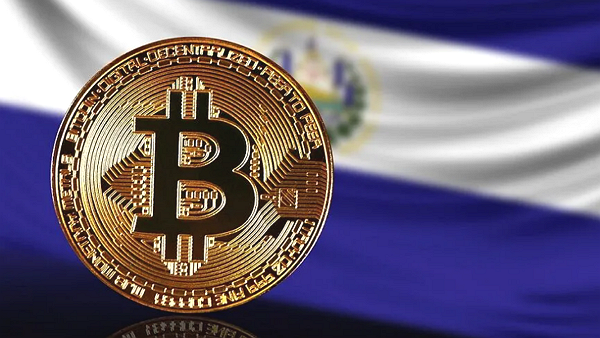
SAN SALVADOR, EL SALVADOR – The government of El Salvador, under the leadership of President Nayib Bukele, has reaffirmed its commitment to its Bitcoin strategy by continuing to acquire the cryptocurrency, directly contradicting earlier assessments by the International Monetary Fund (IMF) and raising serious questions about its adherence to a crucial $1.4 billion loan agreement. Maria Luisa Hayem, El Salvador's Minister of Economy, publicly stated on Thursday that the nation's Bitcoin purchases remain ongoing, a declaration that has swiftly reignited debate and uncertainty within the international financial community.
This revelation stands in stark contrast to recent statements made by the IMF. Just days prior, on Tuesday, Rodrigo Valdes, the Director of the IMF's Western Hemisphere Department, indicated that the institution believed El Salvador was complying with the terms of their negotiated loan arrangement, which reportedly included a cessation of further Bitcoin acquisitions. Valdes had confidently asserted, "We can confirm that El Salvador is adhering to its commitment not to accumulate Bitcoin." This statement now appears to be premature, if not entirely inaccurate, given Minister Hayem's recent confirmation.
Data provided by Bitcoin Office, a platform that tracks Bitcoin holdings and related government activities, further supports Minister Hayem's assertion. The data indicates a consistent pattern of daily Bitcoin purchases by the Salvadoran government, with approximately 1 BTC being added to their reserves each day. As of the latest figures, El Salvador's total Bitcoin holdings amount to 6162.18 BTC. Riding the wave of Bitcoin's recent price surge, these holdings are currently valued at an estimated $584.11 million.
El Salvador's bold embrace of Bitcoin began in September 2021 when it became the first nation in the world to adopt the cryptocurrency as legal tender. This move, championed by President Bukele, was touted as a means to foster financial inclusion, reduce remittance costs, and stimulate economic growth. However, the decision was met with considerable skepticism and outright opposition from international financial institutions, including the IMF, which cited concerns over financial stability, economic risks, and regulatory challenges.
The ongoing accumulation of Bitcoin, particularly in light of the purported agreement with the IMF to halt such activities as a condition for the much-needed $1.4 billion loan, casts a shadow over El Salvador's financial dealings and its relationship with the global lender. The loan is considered crucial for El Salvador's economic stability, especially as the nation grapples with existing debt obligations and seeks to navigate a complex global economic landscape.
A key point of contention and persistent mystery revolves around the source of the funds being used to purchase these Bitcoins. The Salvadoran government has largely remained tight-lipped about the specifics of these transactions, leading to widespread speculation and concern among market observers. Questions abound regarding the transparency and accountability of these financial operations. Are public funds being utilized? If so, what budgetary allocations are in place? Are there alternative sources of funding that have not been disclosed? The lack of clarity surrounding these questions only amplifies the unease surrounding El Salvador's Bitcoin strategy.
The potential ramifications of El Salvador's continued Bitcoin accumulation, especially if it is indeed in violation of the agreed-upon terms with the IMF, could be significant. The IMF might reconsider or delay the disbursement of the loan, which could further strain El Salvador's already delicate financial situation. Moreover, this defiance could negatively impact El Salvador's standing within the international financial community, potentially hindering its access to future funding and investment.
Despite the inherent volatility of the cryptocurrency market, the recent appreciation in Bitcoin's price has, on paper, increased the value of El Salvador's digital asset holdings. While this might be seen as a vindication of President Bukele's strategy by some, it does not negate the fundamental concerns raised by the IMF and other financial experts regarding the long-term risks associated with holding a highly volatile asset as a significant part of a nation's reserves.
The international community will be closely watching the unfolding situation. The apparent contradiction between the IMF's assessment and the Salvadoran government's actions underscores the complexities and potential pitfalls of a nation-state adopting a decentralized and volatile asset like Bitcoin as a core component of its financial strategy. The coming weeks and months are likely to be critical in determining the future of El Salvador's relationship with the IMF and the broader implications of its continued Bitcoin experiment on its economic stability and international standing. The lack of transparency surrounding the funding of these purchases will undoubtedly remain a central point of scrutiny as the narrative unfolds.
[Copyright (c) Global Economic Times. All Rights Reserved.]






























